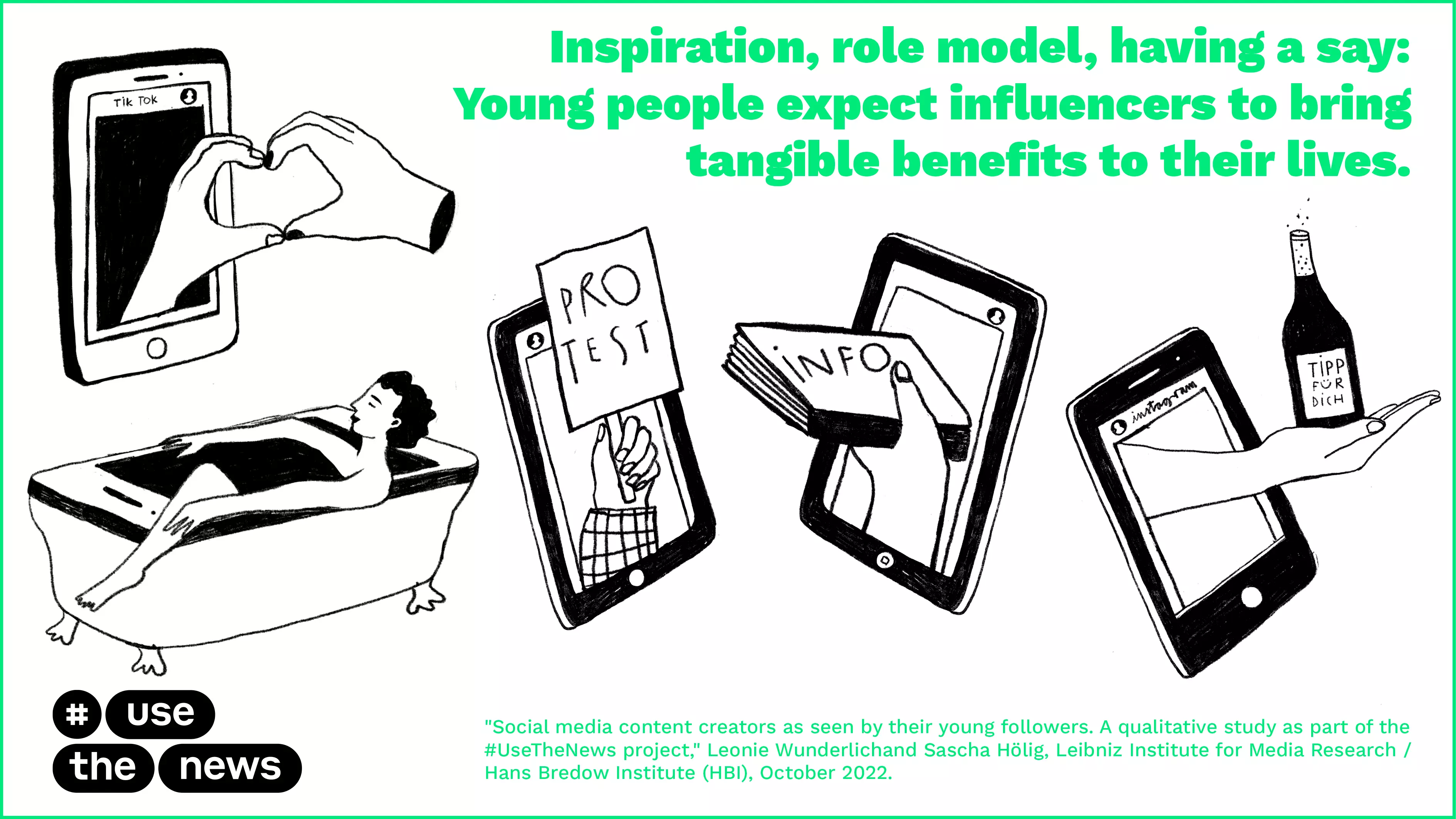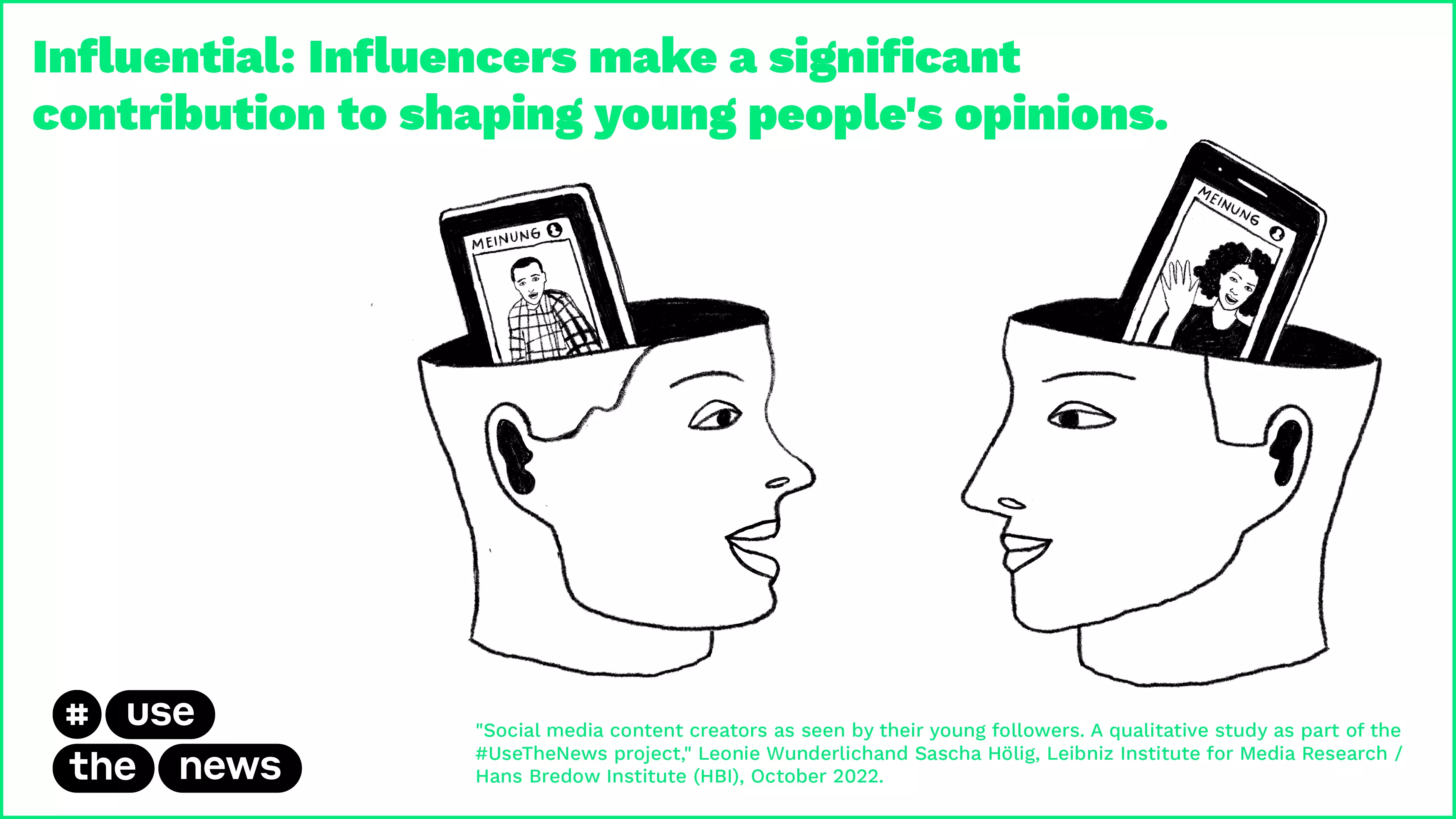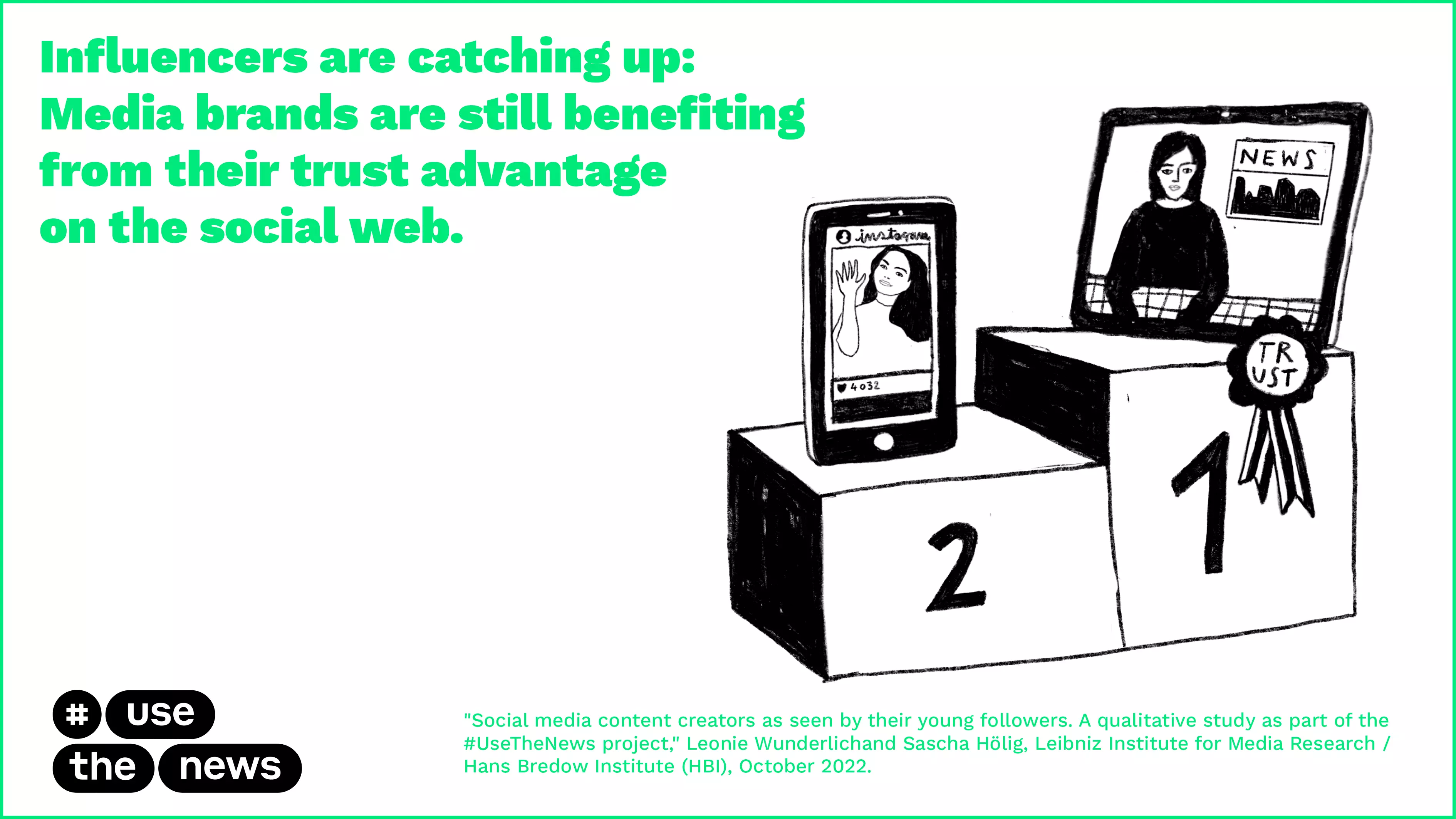
New study: What makes influencers so successful among young people
Young people follow influencers because they expect them to bring tangible benefits to their lives. On TikTok, Instagram, and other platforms, the so-called social media content creators offer inspiration, serve as role models, and provide information that allow young people have their say - and thus make a significant contribution to shaping opinions and categorising news. The traditional information media, which have lost relevance among at least some young people, can score points with adolescents on the social web, provided they take the opportunity to position themselves there as independent and trustworthy players.
These are the findings of the study "Social media content creators from the perspective of their young followers. A qualitative study as part of the #UseTheNews project," conducted by the Leibniz Institute for Media Research | Hans Bredow Institute in Hamburg. The independent study, for which in-depth interviews were conducted with adolescents aged 14 to 17 and young adults aged 18 to 24, is published in the context of the #UseTheNews initiative, with which renowned media organizations and educational institutions, together with dpa, promote news literacy among young people.
To better distinguish between the activities of content creators on social media, the researchers identified four forms of offerings: "person-focused" channels run by individual influencers with either a specific topic or a variety of topics, and "content-focused" channels that are either devoted to a particular topic such as climate or - like ARD's "Tagesschau" on TikTok - cover the entire spectrum of events.
The study asked young people about their main motives for following social media content creators and sorted them into six different usage motives. They ranged from entertainment to establishing social closeness to providing inspiration, guidance, knowledge, or empowerment to have a say. The researchers found that young adults whose primary requirement is knowledge turn more to content-focused offerings, while adolescents tend toward people-focused channels from which they hope to gain identification and orientation.
The young people surveyed are not uncritical of influencers, for example when it comes to the question of the independence of creators who are financed by advertising or the issue of competence when social media personalities with a wide reach comment on complex political issues.
"This study provides in-depth knowledge on the role of influencers in social media news consumption," emphasizes Meinolf Ellers, managing director of the non-profit UseTheNews gGmbH. "For journalism, the question is what can we learn from the success of social media content creators and how can we better serve the usage motives of teenagers and young adults with our own offerings." One goal, he said, is therefore also to work with the media partners of the #UseTheNews Lab to design cooperation opportunities between influencers and editorial teams and to test them in pilot projects.
Based on the results of the study, educational offers and teaching materials are also to be developed that encourage self-reflection about the way young people themselves are using social media and a more conscious approach to media on the social web. Teaching news literacy in schools is one of the central goals to which #UseTheNews is dedicated under the title Open News Education (ONE).


